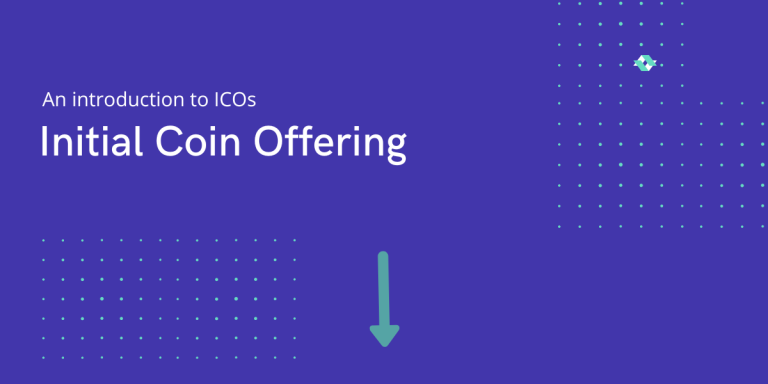ICOs have become a popular way to fund cryptocurrency projects. An ICO is an initial coin offering, which is a new way of raising capital for startups. This funding model has become popular because it allows startups to raise capital without giving up equity in their companies. Let’s look at what ICOs are and learn about the ICO ecosystem.
What is ICO?
An initial coin offering (ICO) is a technique of fundraising in which future crypto coins are exchanged for cryptocurrencies with immediate, liquid value. Typically, a portion of the tokens is sold to ICO participants while the remainder is maintained for the company’s purposes (private investors, etc.). The terms of the ICO may provide that the founders keep 20% (for example).
An ICO could be a source of funding for a young company. An ICO involves the sale of a portion of the crowdfunded cryptocurrency in the form of “tokens” to investors in return for legal tender or other cryptocurrencies such as Bitcoin. If and when the ICO’s funding target is met and the project is launched, these tokens will become functional units of currency. ICOs allow bitcoin project creators to raise funds for their operations.
In exchange for money, an ICO sells a number of the project’s tokens to early backers. This money is often used to fund the project’s development and marketing. If the project is successful, the tokens may be worth more than the ICO funds. If the project fails, the tokens could be worthless.
How does an ICO work?
In an ICO, a company sells digital tokens to investors. These tokens represent shares in the company. Investors buy these tokens with the hope that the company will be successful and the tokens will appreciate in value.
The process of an ICO typically goes as follows:
- A blockchain project looking to raise funds announces an upcoming token sale.
- A date is set for the token sale, and interested investors are able to purchase the tokens with cryptocurrency.
- The tokens are distributed to the investors after the ICO is completed.
- The investors can then use the tokens on the project’s platform or trade them on cryptocurrency exchanges.
Once the ICO is complete, the company can then use the funds raised to develop the project or sell the tokens to the public. If the company decides to sell the tokens to the public, the price of the tokens will likely be higher than the price at which they were sold to investors.
Why are ICOs popular?
ICOs are popular because they allow startups to bypass the traditional process of raising money from investors. In a traditional IPO, a company must go through a long and expensive process to get approval from the SEC. This process can take months or even years.
ICOs allow startups to raise money from a large number of investors quickly and easily. Furthermore, ICOs are not regulated by the SEC. This means that companies can raise money from a wider range of investors than is possible through a traditional IPO.
What are the benefits of investing in an ICO?
- ICOs offer a way for companies to connect with potential customers who may be interested in their products or services.
- ICOs can provide companies with much-needed funding to help them get their business off the ground or expand their operations.
- ICOs can help companies build hype and excitement around their product or service before it is launched.
- ICOs can give companies a way to give back to their community by providing them with a chance to invest in something they believe in.
What are the risks of ICOs?
There are a few risks associated with ICOs.
- ICOs are risky investments. This is because the value of a token can be subject to a wide range of factors, including the success of the project itself, the popularity of the token, and the market conditions.
- ICOs are unregulated. This means that the companies behind them may not have the same level of transparency or accountability as companies that go through a traditional IPO process. This can lead to fraud and other abuses.
- ICOs are conducted in a pre-sale phase. This means that the tokens that are sold may not actually be available to be bought by the public until after the ICO is complete. This can lead to a shortage of tokens and a higher price for the tokens when they are finally available for purchase.
How do I know if an ICO is a good investment?
When researching an ICO, it is important to look at the team, technology, token distribution, and community. Here are a few things to look for when considering investing in an ICO:
- A great team with experience in the industry and a track record of success
- A well-developed technology that solves a real problem
- A fair token distribution that incentivizes early adopters and rewards, long-term holders
- A passionate and engaged community – A roadmap that is realistic and achievable
- A well-designed website and marketing materials
- A fair and transparent token sale process
If an ICO has all of these features, it is likely to be a good investment. However, it is still important to do your own research to make sure you are comfortable with the risks involved.
Conclusion
ICOs are one of the most popular methods for startups to raise money. They offer a quick and easy way to raise money from a wide range of investors. However, ICOs are also risky investments. This is because the value of a token can be subject to a wide range of factors.
Furthermore, ICOs are often unregulated. This means that the companies behind them may not have the same level of transparency or accountability as companies that go through a traditional IPO process.
If you’re thinking about investing in an ICO, it’s important to do your research and understand the risks involved.





